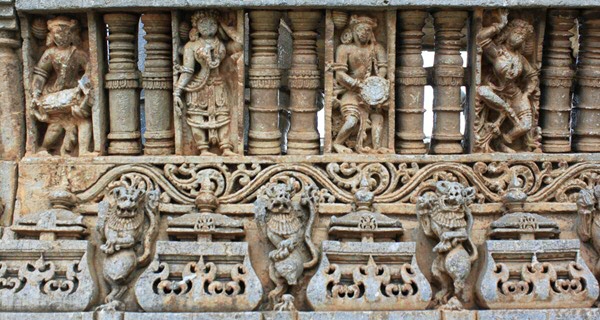Sanskrit Joking Cultures: Bringing Classical Indian Humor to Life Through Translation and Performance
Indian joking cultures create operative spaces for confronting the relations of power that are at play in gender, sexuality, and social difference. However, whereas Sanskrit theatre is well-studied as a stately art form, the counter-normative significance of irreverent humor or humor in performance has largely been neglected.
How did Sanskrit jokes “work” on stage? What did the literati of premodern India laugh about, at whom they laughed? Like today’s stand-up comedy, these jokes spoke to elite male fantasies but at the same time reflected complex anxieties about sexuality, class, politics, and ethnic and religious diversity. How can issues of gender, sexuality, and cultural propriety at the core of Sanskrit humor be translated for a contemporary audience? In order to address the theorizing of translation, both literary and cultural, for the public understanding and appreciation of South Asian irreverent humor, it is necessary to build multidisciplinary research that we will develop new performance-centered methodologies.
This project combines visual anthropology and video techniques with textual analysis and performative studies to explore the cultural significance of irony, ridicule, and other modes of Sanskrit humor within the contemporary performative traditions of Kerala, South India. A central partner of this project is the Nepathya troupe (Moozhikkulam, Kerala), active bearers of Kūṭiyāṭṭam, a unique form of engendered temple theater tradition and Intangible Cultural Heritage, to produce digital multimedia “transcreations.”
An equitable partnership with Nepathya will provide the possibility to observe together with the performers the impact of heritage practices on the performative tradition and to address central questions on perseveration and transformation contributing to the broader discourse on cultural and historical heritage as a practice of modeling and (re)constructing the past in relation to the present.

| Last modified: | 03 January 2022 11.03 a.m. |
